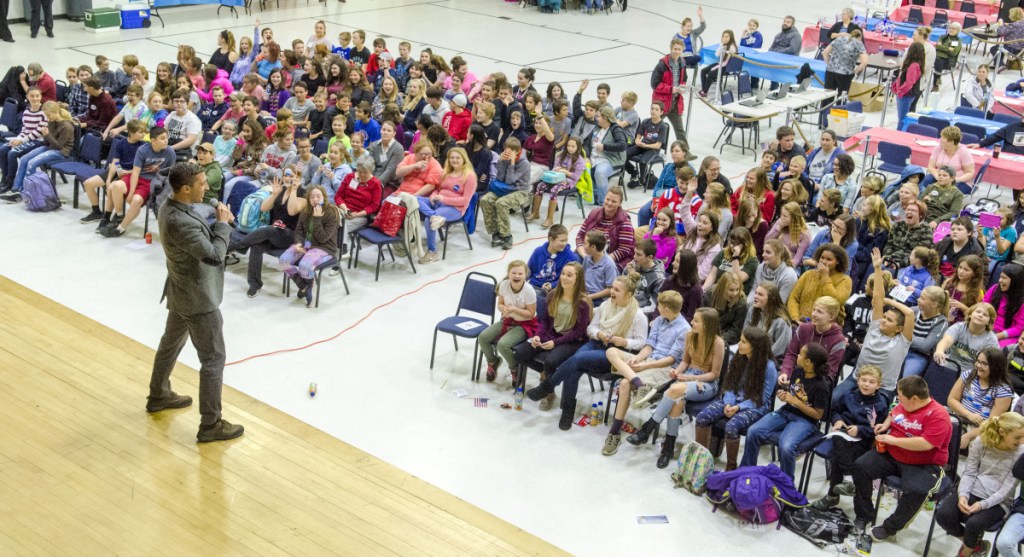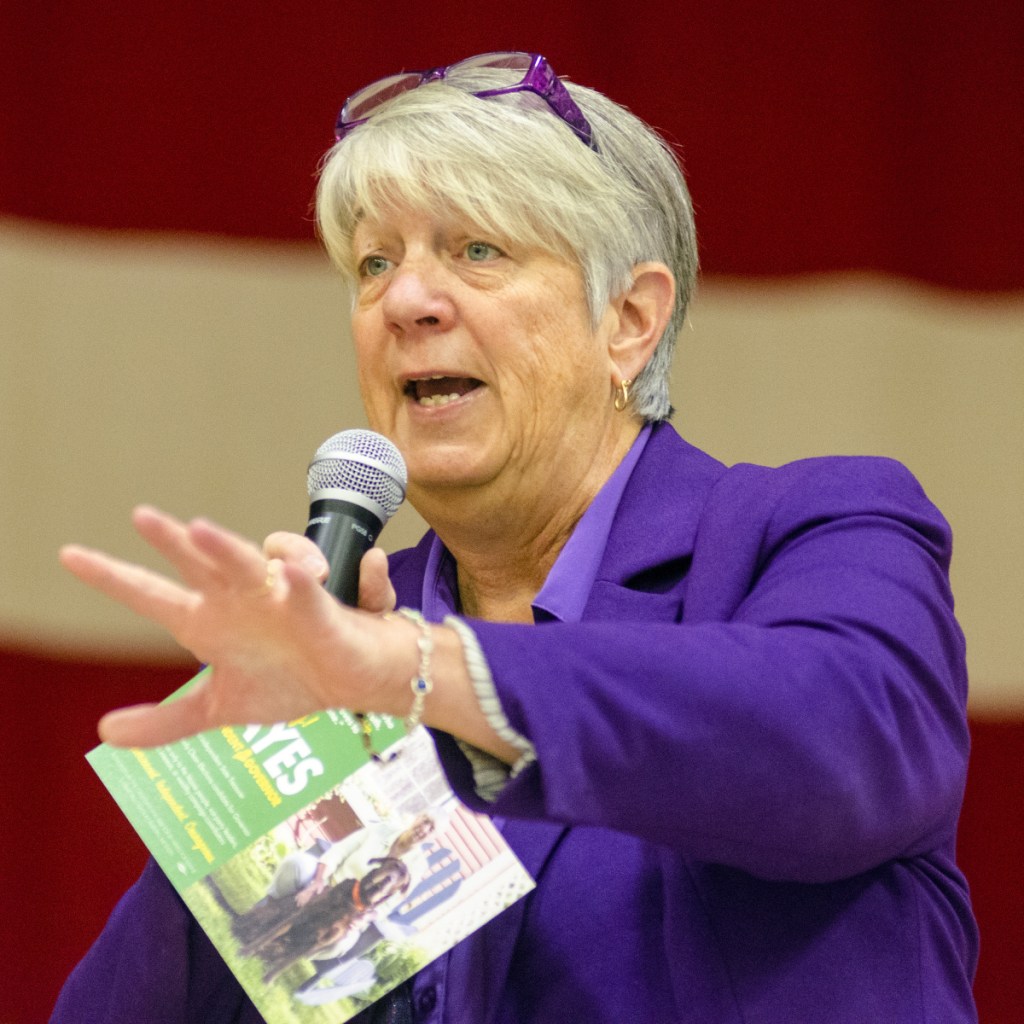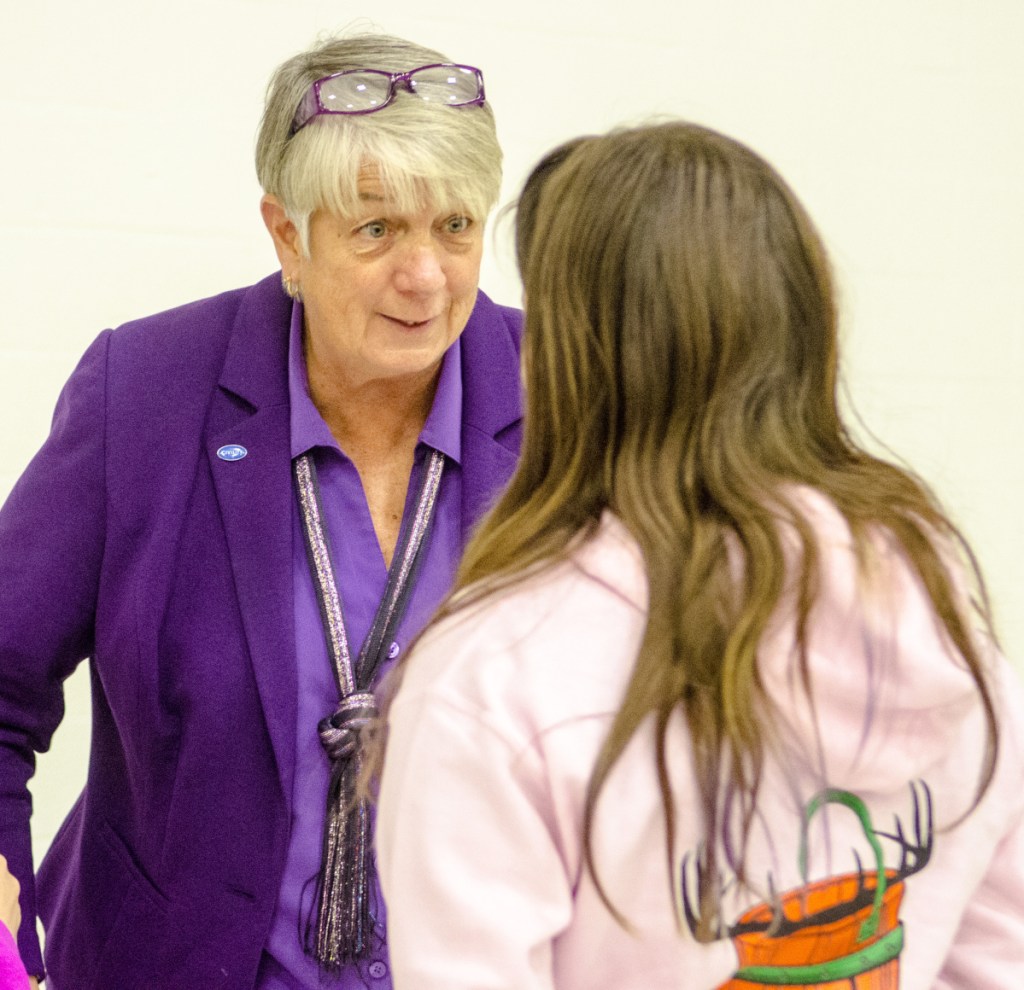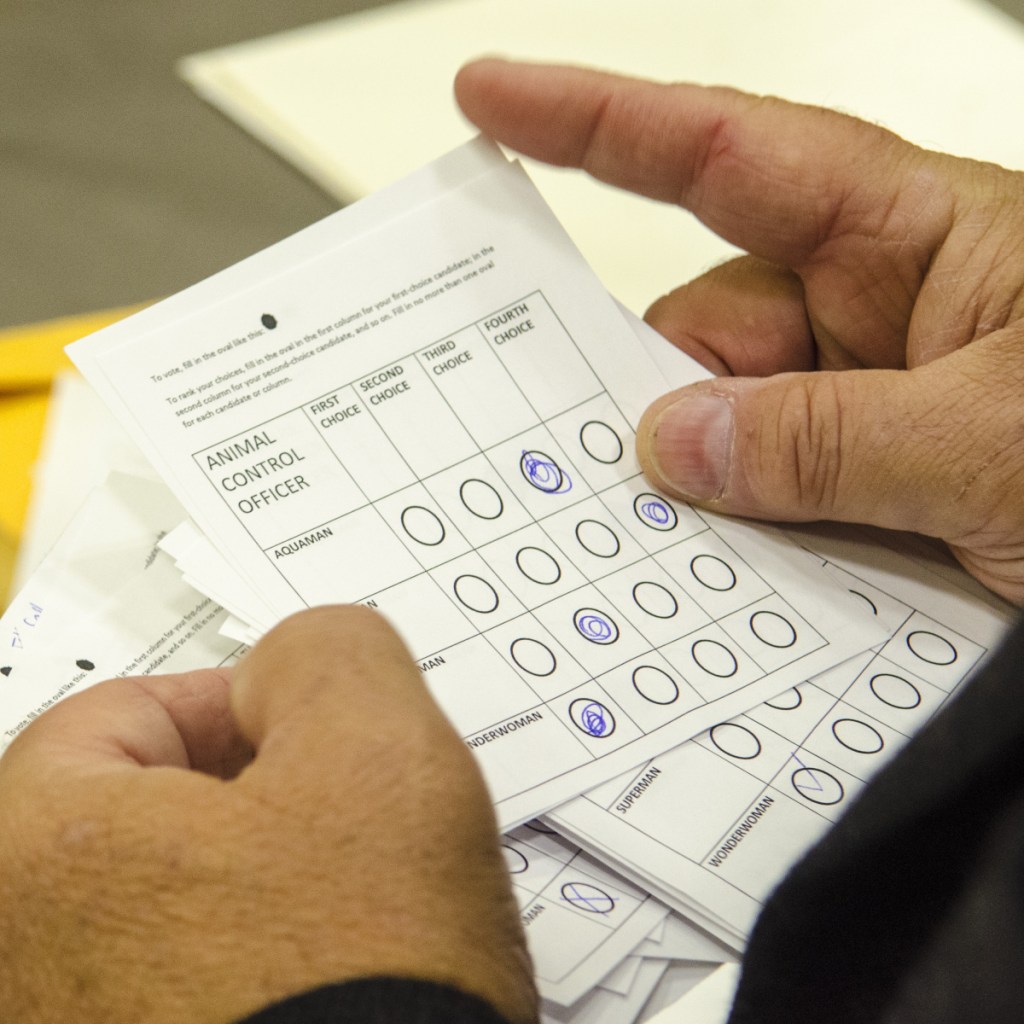AUGUSTA — Middle school students, as many of their parents probably will on Election Day, voted to choose who they think should represent Maine in the U.S. Senate and the U.S. House of Representatives on Wednesday during Maine’s Student Mock Election.
They tried ranked-choice voting, too, but applied it only to an imaginary contest among superheroes.
In the real contests, they picked incumbents independent Angus King for Senate, Democrat Chellie Pingree for the 1st Congressional District, and Republican Bruce Poliquin for the 2nd Congressional District, according to results posted on the mock election webpage.
They selected Republican Shawn Moody for governor, with his 5,306 votes, or 39.4 percent of the total gubernatorial vote, topping Democrat Janet Mills’ 4,583 votes, or 34 percent of the vote. Indepdendents Terry Hayes and Alan Caron received 13.9 percent and 11.3 percent of the vote, respectively.
Students also elected Batman as animal control officer in the four-superhero race, narrowly picking him — by eight votes — over Wonder Woman in voting decided via three rounds of counting. The other candidates — Superman and Aquaman — were counted out in the first and second rounds, respectively; and in the third round, Batman crossed the 50 percent vote threshold required to have a majority of votes cast and thus be declared the winner in the somewhat complex ranked-choice voting system.
Oak Hill Middle School student Joshua Bonner had voted in the superhero mock election demonstration of ranked choice voting for Superman as his first choice. He ranked Aquaman as his second choice, Wonder Woman as his third, and Batman as his fourth. Bonner said he understood how ranked-choice voting works, though he said some people might find the voting method confusing in a race with a lot of candidates to choose from and rank.
Tyson Downs, an eighth-grader at Mount View Middle School in Thorndike, voted for Wonder Woman, only ranking her and not ranking any other of the superheros, which is also a perfectly acceptable way of voting under the method. However, he said he didn’t fully understand how ranked-choice voting works.
Sam Howes, a staff member of the secretary of state’s office, the agency which oversees both Maine’s election coming up next month and the student mock election Wednesday at the Augusta State Armory, sought to explain how ranked-choice voting works to students using different colored sticky notes representing their choices of candidates.
He had each of them rank their favored “candidates,” in this case their favorite colors, then tallied up who got the most votes and how the other colorful candidates ranked, eliminating the candidate receiving the fewest votes in a goal to eliminate candidates until one of them got 50 percent of the vote or more.
Even he hit a glitch, however, pausing as students looked on to look up the rules for how to rank two candidates who received the same number of votes in one round of ranking.
Oak Hill student Sierra Lane eyed the array of colors carefully before voting, ranking purple her favorite, followed by blue and green.
She said ranked choice voting seemed pretty easy, and she thinks it’s a better way to pick candidates than the more traditional method of each voter only voting for one candidate and the candidate getting the most votes winning, regardless of whether that candidate got at least 50 percent of the vote.
Kristen Muszynski, director of communications for the secretary of state, said when the real election results are tallied, the state will use computers pre-programmed with an algorithm specifically created for ranked-choice vote counting. She said that system already is locked down for the Nov. 6 elections, so it couldn’t be used for the mock elections. She said workers would hand-count the results for the mock election’s races involving the superheroes. The other races on this year’s ballot, including the race for governor, will not use ranked-choice voting.
Secretary of State Matt Dunlap urged students to vote and to seek elected offices at all levels, ranging from sewer district commissioner to U.S. senator.
“It’s not always glamorous work, but it’s always important work, and all that starts with you voting,” Dunlap said. “Because the world is run by those who show up.”
Students from about 100 schools statewide cast ballots for candidates and voted on state referendum issues in the mock election, with students at the armory Wednesday working on phones and laptop computers to tally the results as they came in.
Olivia Heath read aloud results that had been emailed from participating schools as her Oak Hill classmate Kaylee Panzino typed those results into an online database where the mock election results were tallied throughout the day.
Both said they voted in the mock election and both found voting to be easy. Both also said it’s an important thing to do, and something they’ll do when they turn 18.
“It’s important to vote so you know who is running your country,” Panzino said.
Some students, including Bonner, prepared “stump speeches” — short speeches on political issues — which they were to make to their fellow students later in the day. Bonner said his speech was about things people could do to improve gun safety. He acknowledged to being a bit nervous about presenting his speech in the brightly lit armory auditorium to so many other students.
“If you’re not nervous, you’re not doing it right,” he quipped.
As the event drew to a close Wednesday, Adam Howe and Julia Nichols, eighth-graders at Tripp Middle School in Turner, took to the stage to provide what were then up-to-date vote totals, though Muszynski said results would continue to come in from Maine schools throughout the rest of the day.
Students favored Poliquin for House District 2, with 1,856 votes, or 39.8 percent, over Democrat Jared Golden, who received 1,666 votes, 35.8 percent. Independents Tiffany Bond (736 votes) and William Hoar (332 votes) received 15.8 percent and 7.1 percent of the vote, respectively.
Pingree took her House district 1 with 3,453 students votes, or 46.5 percent, topping the next closest candidate, Repubican Mark Holbrook, who received 2,193 votes, or 29.5 percent. Independent Marty Grohman received 1,706 votes, or 23 percent.
King, with 6,553 votes, or 52.4 percent, was chosen by students for the U.S. Senate seat, with Republican Eric Brakey coming in second, with 3,193 votes, or 25.5 percent. Democrat Zak Ringelstein received 2,605 votes, or 20.8 percent.
Keith Edwards — 621-5647
Send questions/comments to the editors.













Comments are no longer available on this story